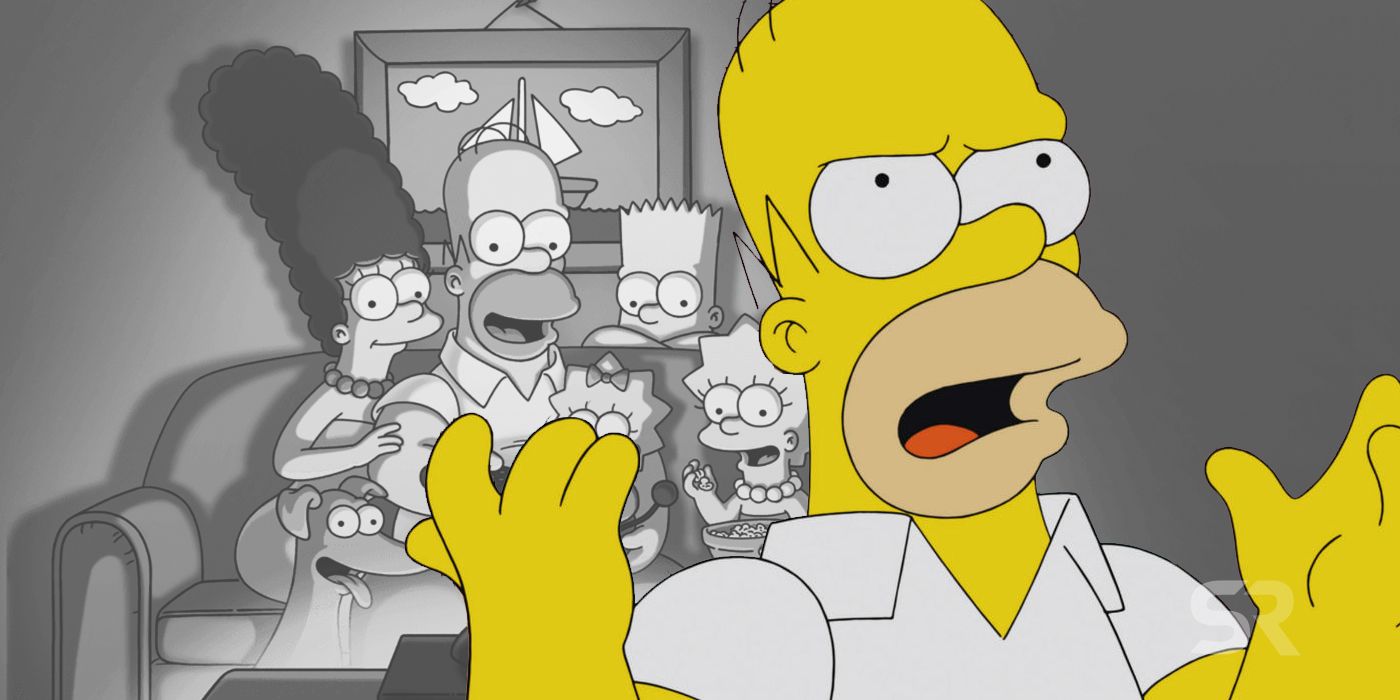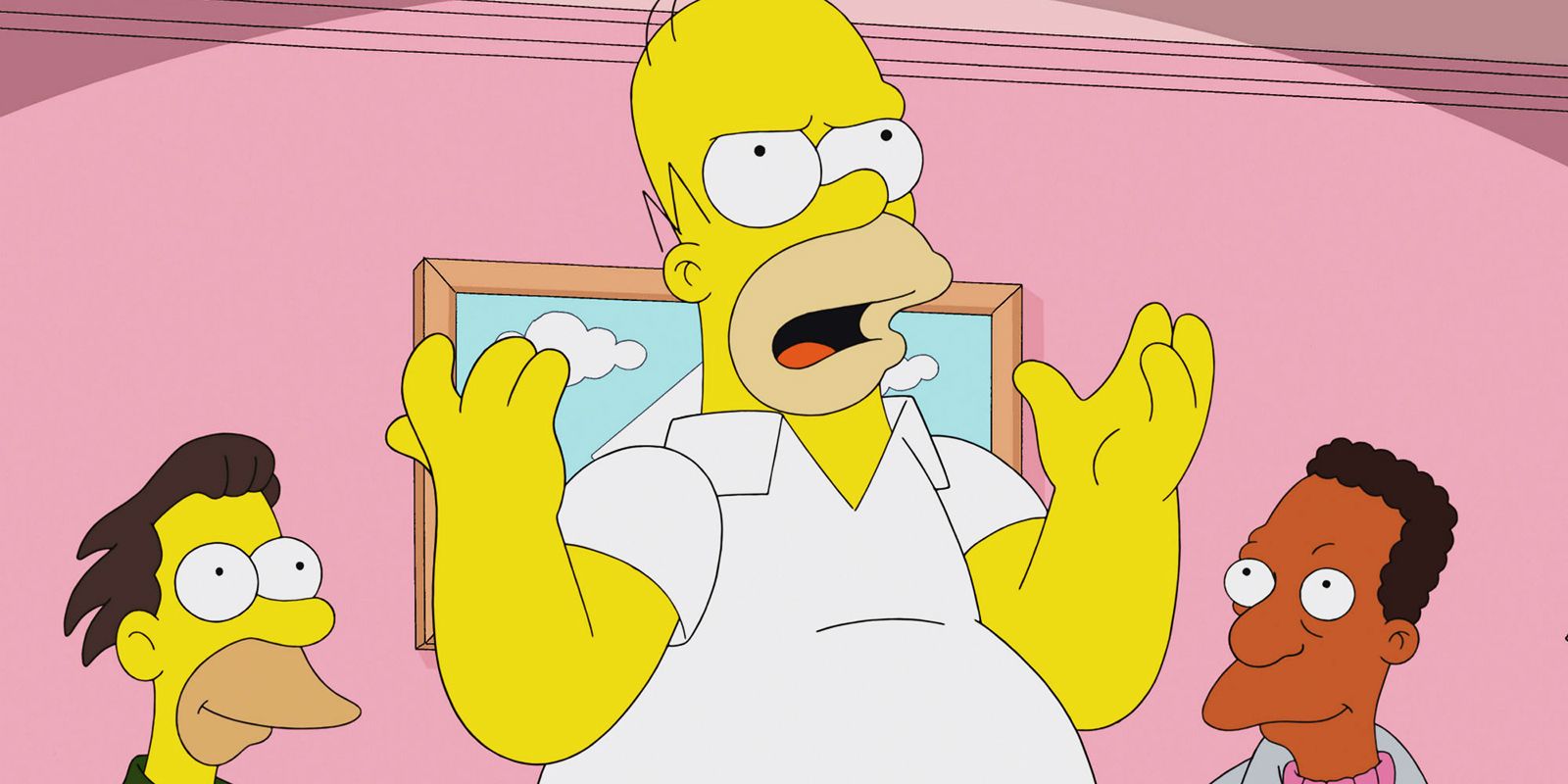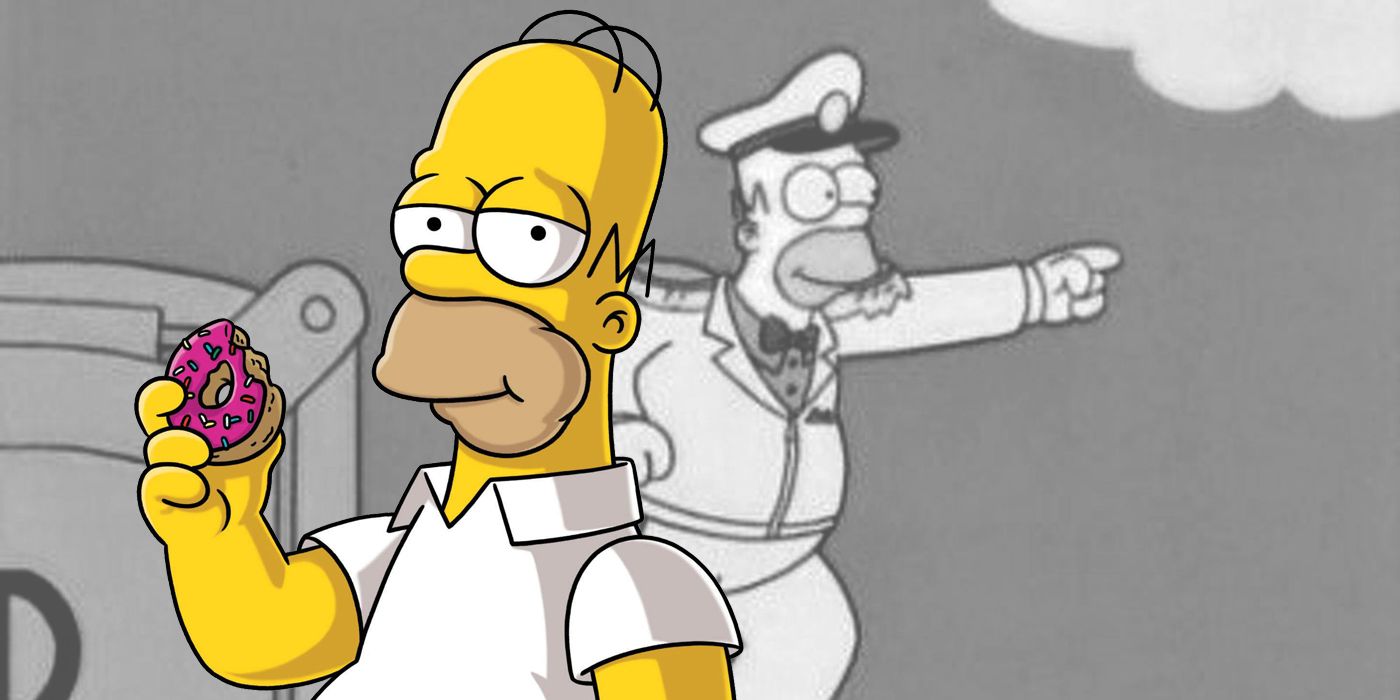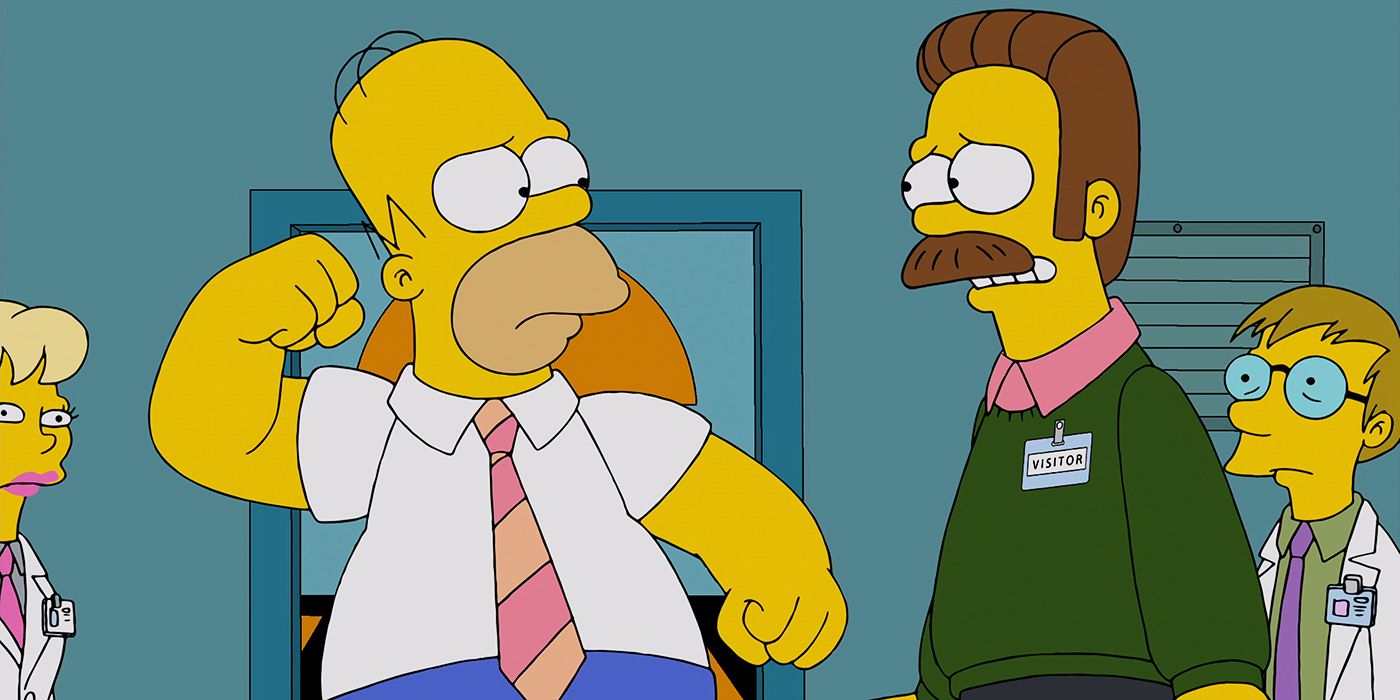
The Simpsons has been around for 30 years, so it’s no surprise that the characters, even if they don’t age, have changed a lot, mostly in personality and behavior. One of the most notable differences, and one that fans are not ok with, is Homer’s transformation into what has become known as “Jerkass Homer”, given his selfishness and overall meanness. With 31 seasons and over 600 episodes, it’s not easy to pinpoint exactly where Homer’s transformation began, more so because there has always been a “jerk” quality to him, but it was usually buried underneath other traits.
Created by Matt Groening, The Simpsons debuted in 1987 as a series of animated shorts in The Tracey Ullman Show, and was developed into a half-hour prime time show after three seasons, officially debuting in 1989. The Simpsons follows the daily lives of the title family and other notable citizens of Springfield, including friends and enemies of the Simpsons family. In 30 years, the Simpsons have visited many places outside Springfield (including space), have gone through all types of situations, and have also changed in terms of personality, though not always for the better.
Just like the rest of his family, Homer Simpson is now part of pop culture, and is the source of many memes and jokes. Homer is lazy and ignorant, but cares a lot about his family – or at least that was the Homer viewers met at the beginning, as he has now transformed into what fans call “Jerkass Homer”. So, what happened to him?

Homer Simpson is dim-witted, immature, lazy, incompetent, clumsy, and prone to emotional outbursts (look no further than to all the times he has strangled Bart), but he’s also a caring and loving father, and even if he doesn’t fully understand the situation, he would do anything to keep his family safe. Homer’s funny moments mostly came from his ignorance, immaturity, and clumsiness, which obviously brought him a lot of problems, as he often talks without thinking. However, as the series progressed, Homer became selfish, and earned the label of “Jerkass Homer”.
This current Homer has been described as “boorish” and a “self-aggrandizing oaf”, and this change is one of the factors that contributed to the series’ quality decline. Homer went from sweet and caring father with one or two moments of brilliance, to a man who puts himself first, and not even his family will be more important than him. Unlike past Homer, this version intentionally does things to hurt others and doesn’t take responsibility for his actions anymore. While Homer has never been the best father, husband, neighbor, and friend, he had many more personality traits that made him a layered (and relatable) character in earlier seasons, and now he’s just a selfish man that is mean on purpose.

There were signs of Homer’s “jerkass” side early on in the series, but the difference with the current version of the character is that this attitude wasn’t predominant, and in the end he took responsibility for his selfish and rude actions. For example, season 3’s episode “When Flanders Failed”, in which Ned Flanders started his own store for the left-handed. Homer immediately imagined the store going out of business and Ned going bankrupt. He even checked up on him to make sure the store was doing poorly, and was pleased to see it was going quite badly. When the store closed and Ned and his family were left bankrupt, Homer wasn’t happy anymore, and helped him regain his house and the store.
Another early episode where Homer’s attitude was heavily criticized is season 6’s “Lisa on Ice”, where he taunted Lisa and Bart when they lost and pitted them against each other. One episode that fans have suggested as possible beginning of Jerkass Homer is season 8’s “Homer’s Enemy”. However, many others have pointed out that this could have been the origin of the idea of Jerkass Homer, though not the origin of the character as it is. In this episode, Homer didn’t really act like a “jerkass”, but was perceived as such by Frank Grimes.
What’s for sure is that Homer’s transformation began during Mike Scully’s time as showrunner, from season 9 (1997) to 12 (2001). During that time, the series shifted its focus to Homer, and made him the center of most episodes. It was also around this time where The Simpsons’ quality began to decrease, with some critics finding that it became a cartoon rather than being a representation of American families. Taking that into account, many fans consider the origin of Jerkass Homer can be found in season 9’s episode “Trash of the Titans”. In it, Homer got into trouble with the garbage men and refused to apologize; as a result, the Simpsons’ trash service was cut off, prompting him to run for Commissioner and implement his own trash collection services, which only ended up filling the city with garbage. Fans have found this Homer to be over the top and the overall episode to be tiring, as it centered on him and his pointless actions.

Homer isn’t the only character from The Simpsons who has gone through changes that ended up hurting it. The biggest example is Ned Flanders, who went from good-natured, nice, and ideal neighbor, to obsessively religious, with his life now revolving around church and religion. This change has been labelled as “Flanderization”, and has even become a proper TV trope. Many other characters have also changed through the years, though maybe not as much or as drastically as Homer and Ned.
Seymour Skinner, for example, has been many things during his time in The Simpsons, and he wasn’t even the real Seymour Skinner at some point, something fans felt was too much, and so that particular episode (titled “The Principal and the Pauper”) is credited as the one that marks when The Simpsons turned bad. Moe Szyslak went from stereotypical bartender to one of the characters with the darkest arcs, as he suffers from depression and even has an annual Christmas tradition of attempting to kill himself. Ralph Wiggum has also changed a lot, as he began as a charming, well-meaning kid who was also dim-witted and awkward, often making comments that had nothing to do with the current situation. Still, he showed signs of brilliance from time to time and was a functional member of Springfield’s society. Now, Ralph has become a character whose only job is to deliver dumb lines and lacks the heart and charm that made him so likeable.
Given that The Simpsons has been active for decades, it’s not surprising that most of its characters have gone through major changes, making their current versions completely different to the ones in the first seasons – sadly, not all those changes have been for good, and they haven’t added to the character’s development in most cases, instead letting them stuck in just one trait and exaggerating it for the sake of “laughs”.
from ScreenRant - Feed https://ift.tt/2vp9u18

0 comments:
Post a Comment